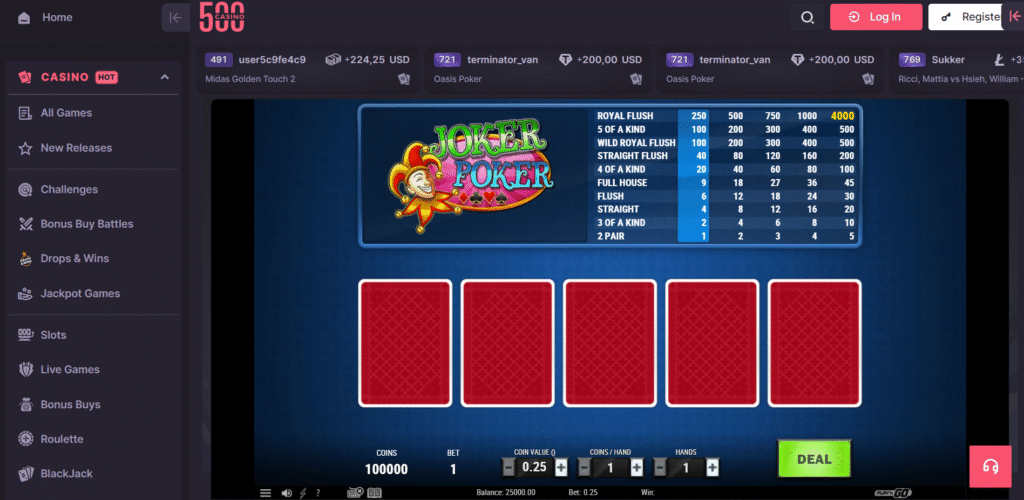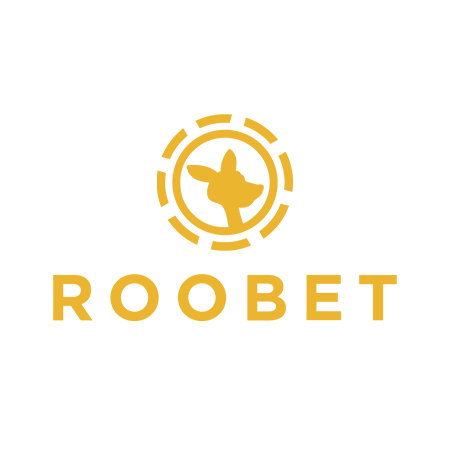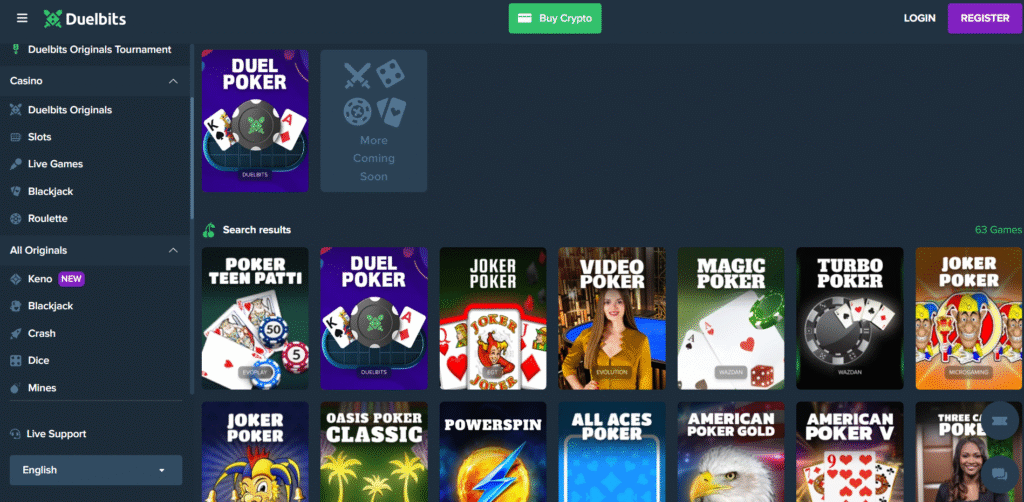What Are CS2 (ex CS:GO) Poker Sites?
Counter-Strike: Global Offensive (CSGO) and its successor, Counter-Strike 2 (CS2), aren’t just competitive shooters—they’re economic ecosystems teeming with digital commodities, the most valuable being skins. In recent years, a fascinating intersection has developed between online poker and the CSGO/CS2 universe: skin-based poker sites.
CS2 (ex CS:GO) poker sites are specialized online platforms that allow players to use their in-game skins instead of traditional currency to play poker. These websites replicate classic poker games like Texas Hold’em, but with a twist—the stakes are CSGO/CS2 skins, which hold real-world monetary value. This creates a hybrid gambling model where virtual items translate into high-stakes poker chips.

Imagine logging into a website with your Steam account, depositing a flashy AK-47 skin worth $200, and using it to join a virtual poker table. If you win, you might walk away with a rare knife skin or a set of top-tier cosmetic items. If you lose? Your opponent takes your precious loadout.
These platforms mimic the feel of traditional online poker but introduce a gamified edge tailored to gamers. The psychology of gambling meets the thrill of gaming cosmetics, making it an addicting proposition for many users. Unlike traditional poker sites that deal in dollars or cryptocurrencies, CS2 (ex CS:GO) poker platforms thrive on the valuation and desirability of digital cosmetics.
Why Are CS2 (ex CS:GO) Poker Sites Gaining Popularity?
The rise in popularity of CS2 (ex CS:GO) poker sites isn’t just a coincidence. It’s driven by a perfect storm of gaming culture, digital ownership trends, and the gambling industry’s evolution. Let’s break down the key reasons:
1. Gamification of Gambling
Traditional poker sites can feel sterile and formal. In contrast, CS2 (ex CS:GO) poker sites are colorful, game-themed, and tailored for younger audiences. The gambling experience is masked in a layer of gamification, making it feel like just another competitive game—only this one has real-world consequences.
2. Skin Value and Prestige
Skins are more than just cosmetic; they’re digital trophies. Owning a rare or flashy skin is a badge of honor in the CSGO and CS2 communities. Poker sites that allow players to bet these valuable items tap into that intrinsic desire for status and recognition.
3. Twitch & Influencer Culture
Streamers play a huge role in promoting these platforms. Watching someone go all-in with a rare Karambit Fade can be more thrilling than a high-stakes cash game. It fuels curiosity and creates a viral loop that draws more players into the ecosystem.
4. Accessibility & Anonymity
Since many sites allow direct Steam login and don’t always require ID verification, they attract a demographic that values privacy. Plus, it’s easier for young players to access skins than to navigate traditional gambling barriers.
5. Lack of Regulation
Operating in a legal gray area allows many of these platforms to thrive without stringent restrictions. This often translates to higher bonuses, faster payouts, and more user-centric features—though it also raises concerns about fairness and player protection.
In essence, CS2 (ex CS:GO) poker sites combine the thrill of gambling, the beauty of skins, and the spirit of competitive gaming. They’re not just popular because they offer poker—they’re popular because they offer poker with personality.
Best CS2 (ex CS:GO) Poker Sites



How Poker and Skin Gambling Work Together
To understand the dynamic marriage of poker and skin gambling, you have to look at both systems individually before seeing how they fuse.
Poker is a game of skill, bluffing, and luck. Players bet based on their confidence in their hand or their ability to convince others to fold. When you introduce skins into the mix, poker becomes a high-stakes battle where flashy digital items become chips on the table.
In these poker sites, you deposit your skins to receive credits or coins of equal value. These are then used to join poker tables, play hands, and win other players’ skins. Some platforms even allow direct skin-to-skin betting, where you place a specific item as your wager.
A simple example: You wager your $150 M4A1-S | Hyper Beast. Your opponent wagers a similar-value AWP | Asiimov. Winner takes both.
What makes this thrilling is the combination of traditional poker tension with the emotional value of skins. Losing a rare skin stings more than losing anonymous digital credits. The game feels personal. Winning someone else’s prized item? That’s like winning their championship belt.
Another layer is added when skins fluctuate in value. A skin you win today might rise in price next week, introducing a speculative investment angle. Players aren’t just gambling; they’re trading in a volatile market of digital collectibles.
What Are Skins and Their Real-World Value?
Skins in CSGO and CS2 are purely cosmetic upgrades for in-game weapons. They don’t affect gameplay, but their rarity and visual appeal can make them highly sought after. Think of them as virtual fashion—some are cheap and common, others are prestigious and expensive.
Each skin has a unique market value that fluctuates based on supply, demand, and condition (like Factory New or Battle-Scarred). Some ultra-rare skins can fetch thousands of dollars. For instance, a StatTrak™ M9 Bayonet | Crimson Web (Factory New) could be worth over $10,000.
This real-world value is what turns skins into digital currency. Players trade them, sell them for PayPal or crypto, or gamble them on poker sites. The trading economy is powered by marketplaces like the Steam Community Market, Bitskins, and third-party trading platforms.
Because they can be converted into real money, skins effectively become poker chips with artistic flair. This adds emotional weight to every hand played on CS2 (ex CS:GO) poker sites.
Skin Trading and Betting Ecosystem
The backbone of poker gambling with CSGO/CS2 skins is the robust trading and betting ecosystem. This is how the whole model stays afloat and continues to grow:
-
Trading Platforms
These allow users to buy, sell, and exchange skins. Users often cash out their poker winnings by selling rare skins to collectors or resellers -
Bots and Instant Trading
Most poker sites use bots that automatically handle deposits and withdrawals. This ensures quick, automated transactions -
Value Conversion
Sites appraise skins based on their current market value and offer in-platform coins or credits in return. These credits are then used in poker games -
Peer-to-Peer Trades
Some platforms let users trade directly with each other, bypassing bots for rare or high-value skins
This ecosystem thrives because it provides liquidity. Skins aren’t just static collectibles—they’re fluid, tradable, and bettable. That’s what makes them so powerful in the context of gambling.
Is Skin Gambling Legal?
The legality of CS2 (ex CS:GO) skin gambling sits in a gray area that shifts depending on the region. Unlike traditional gambling platforms that are heavily regulated, many skin gambling websites operate outside the jurisdiction of mainstream gaming laws. This legal ambiguity creates an environment where users can engage in high-value poker games using virtual items without the same oversight applied to fiat or crypto gambling.
In some countries, such as the UK, regulators like the Gambling Commission have taken a strong stance against unlicensed skin gambling platforms. Sites that facilitate betting without proper authorization can face bans or legal action. On the flip side, countries with lax internet gambling laws allow these platforms to operate without much interference. This variance makes the legal landscape complex and unpredictable.
Valve, the company behind CSGO and CS2, has occasionally intervened, especially when public scrutiny increases. In 2016, Valve issued cease-and-desist letters to several gambling sites that utilized Steam’s trading APIs. However, enforcement has been inconsistent, allowing many new platforms to emerge.
To summarize: while skin gambling isn’t explicitly illegal everywhere, it’s largely unregulated, which introduces significant legal risks for both operators and users. If you’re engaging in poker games using skins, it’s essential to understand your country’s gambling laws and ensure you’re using reputable platforms that at least attempt to provide transparency and fairness.
CS2 (ex CS:GO) Poker Sites Age Restrictions and Responsible Gambling
Skin gambling platforms are especially popular among younger gamers, many of whom are below the legal gambling age in their respective countries. This demographic is particularly vulnerable to addictive behaviors, and the lack of strict age verification mechanisms on most CS2 (ex CS:GO) poker sites only exacerbates the issue.
Let’s be real—most sites only require a Steam login, and if your account appears old enough, you’re in. This low barrier makes it incredibly easy for minors to gamble, which has sparked concern among parents, regulators, and mental health experts. The visual appeal of skins, combined with the thrill of poker, creates a potentially addictive mix, particularly for impressionable teens.
To combat this, a few platforms have introduced age checks, self-exclusion tools, and gambling limits. However, enforcement remains inconsistent. Without industry-wide standards or mandatory regulations, the burden often falls on parents and the players themselves to exercise caution.
Educating users on responsible gambling is crucial. Recognizing the signs of addiction, setting time and spending limits, and treating skins as real money are all essential steps. If a player can’t afford to lose a $500 knife, they shouldn’t be using it as a poker chip. Period.
Valve’s Stance on Third-Party Gambling
Valve’s relationship with third-party gambling sites has always been a bit of a tightrope walk. On one hand, Valve created the ecosystem by allowing skins to be tradable and linkable through Steam. On the other hand, the company has repeatedly distanced itself from gambling-related activity to protect its brand and comply with legal norms.
In their 2016 crackdown, Valve issued a series of cease-and-desist letters to gambling sites, accusing them of violating the Steam Subscriber Agreement. The move was seen as a response to increasing media scrutiny and legal pressure. But despite these efforts, gambling platforms quickly found workarounds—new domains, mirror sites, and even alternative login methods that don’t rely on Steam’s trading bots.
Valve maintains that it does not support or condone gambling using its items. However, as long as skins have real-world value and are tradable, the potential for gambling will always exist. Valve could remove skin trading entirely to eliminate the issue, but that would devastate a core part of the game’s appeal and economy.
So, Valve continues to monitor and occasionally act against major violators, but the responsibility to regulate skin gambling largely falls on governments and users themselves. In other words, don’t expect Valve to save you from a bad bet.
Secure Transactions and Provably Fair Systems
In any form of online gambling, trust is everything. And when real money—disguised as digital skins—is at stake, security becomes even more critical. The best CS2 (ex CS:GO) poker sites go to great lengths to ensure that every transaction and game outcome is transparent, secure, and verifiable.
1. Secure Deposits and Withdrawals
Top-tier poker sites offer secure bots that automate the transfer of skins. These bots typically operate via Steam trade links, making transactions fast and traceable. Look for platforms that use SSL encryption and multi-factor authentication for added security.
2. Provably Fair Algorithms
A hallmark of legit gambling platforms is the use of “provably fair” systems. These algorithms let players verify that the outcomes of poker hands or game results aren’t rigged. Here’s how it works:
- The site generates a random seed.
- The player receives a hash of that seed before the game starts.
- After the hand, both the seed and result are revealed, allowing players to verify that nothing was manipulated.
3. Anti-Cheat and Bot Detection
Poker games are susceptible to collusion and botting. Leading platforms have detection systems to flag suspicious behavior, like repeated joint wins or unnatural betting patterns. Some even limit how often two players can sit at the same table to discourage teaming.
4. Transparent Terms of Service
Legit platforms clearly outline their rules, payout structures, and policies. They also include sections on dispute resolution and user bans. If a site doesn’t offer a transparent FAQ or legal section, that’s a major red flag.
Game Variety and User Interface

When it comes to CS2 (ex CS:GO) poker sites, the game selection and user interface can make or break your experience. After all, what’s the point of wagering a $500 Dragon Lore if the platform lags, crashes, or offers only a bare-bones poker setup?
1. Game Modes That Go Beyond Hold’em
While Texas Hold’em is the staple, many CSGO/CS2 poker sites have started expanding their offerings. You’ll find:
- Omaha Poker – For players who like more action and deeper strategy.
- Sit & Go Tournaments – Quick, one-table tournaments that can escalate fast.
- Multi-table Tournaments (MTTs) – Competitive and rewarding for players with endurance.
- Heads-Up Matches – One-on-one poker for high-stakes drama.
These options allow players to choose how they want to play and at what pace.
2. Real-Time UI Feedback and Betting Controls
A clean, responsive interface is essential. Most reputable platforms offer:
- Customizable tables and avatars.
- Real-time bet tracking and pot calculations.
- Fast hand histories and player statistics.
Being able to read the flow of the game visually—who raised, how much, and when—adds to the strategic depth.
3. Mobile Compatibility
Modern poker sites are optimizing for smartphones and tablets. Whether it’s a mobile web version or a standalone app, mobile poker is becoming the norm. This lets players enjoy a game while commuting or chilling on the couch.
4. Skin Display Integration
One of the coolest UI features is the display of wagered skins on the poker table itself. Imagine seeing your opponent’s M9 Bayonet spinning on the virtual table—it’s immersive and intimidating.
In short, top-tier poker sites don’t just replicate a poker table; they create an experience that’s fluid, engaging, and uniquely tailored for the gaming community.
Bonuses and Promotions
Just like traditional online casinos, CS2 (ex CS:GO) poker sites know how to entice players with juicy bonuses. These aren’t just gimmicks—they’re strategic tools to keep you playing longer and returning frequently.
1. Welcome Bonuses
Most sites offer a starter pack when you sign up and make your first deposit. This might be in the form of:
- A % match on your skin deposit (e.g., deposit $100 worth of skins, get $50 bonus chips).
- Free entry into poker tournaments.
- A free high-value skin just for verifying your account.
2. Daily and Weekly Challenges
To keep players engaged, many platforms have tasks like:
- Win three hands in a row.
- Beat five opponents in Sit & Go games.
- Reach a certain rake target.
Completing these challenges often earns you free skins or additional poker credits.
3. Rakeback and Loyalty Programs
Top sites reward frequent players through rakeback systems, where a percentage of the rake (house fee) is returned to you weekly or monthly. Additionally, loyalty tiers can unlock:
- Higher withdrawal limits.
- Exclusive tables.
- Custom avatars and badges.
4. Giveaway Campaigns
Social media giveaways, referral bonuses, and Twitch streamer collaborations often lead to huge prize pools. These events might reward you with rare skins, tournament buy-ins, or merchandise.
While bonuses are exciting, always read the terms. Some require extensive playthrough before withdrawals. But when used strategically, these promos can significantly extend your gameplay and value.
Key Features, Pros, and Cons of Poker Sites
Every CS2 (ex CS:GO) poker site has its strengths and weaknesses. Knowing these can help you avoid scams and make the most of your gaming experience. Let’s break it down with a side-by-side comparison of key features you should look for and the common pros and cons associated with top platforms.
| Feature | Importance | Pros | Cons |
|---|---|---|---|
| Skin Integration | Seamless use of CSGO/CS2 skins for betting | Feels intuitive, makes use of existing inventory | Delays with Steam API can affect transactions |
| Provably Fair System | Ensures fairness in game outcomes | Verifiable results, builds trust | Can be complex for beginners to understand |
| Game Variety | Keeps the platform engaging | Offers Hold’em, Omaha, SNGs, MTTs | Too many modes can confuse new users |
| Community & Chat | Social interaction and community bonding | Adds fun, team play, and social strategy | Can lead to spam or toxic behavior |
| Rake & Fees | Affects your winnings over time | Competitive rake gives better ROI | High rake cuts into profit margins |
| Bonuses & Loyalty | Boosts user retention and player value | Free coins, skins, entries to tournaments | Often tied to high wagering requirements |
| Support & Helpdesk | Critical when issues arise | Live chat, ticket systems improve experience | Some sites lack timely support responses |
What Does This Mean for You?
The perfect poker site balances security, fairness, ease of use, and entertainment. If you’re new, focus on platforms that offer clear guides and low-stakes tables. If you’re a veteran, look for ones with high rakeback percentages, exclusive tournaments, and rare skin matchups.
Don’t just jump in for the flashiest skins or the biggest welcome bonus—choose a platform that matches your playstyle, risk tolerance, and game preferences.
User Ratings and Community Feedback
Trusting user experiences can be one of the best ways to determine whether a poker site is worth your time. Here’s a quick snapshot of what the CSGO and CS2 communities have been saying about popular platforms:
Common Praise Points
- Fast Withdrawals: Nothing is more frustrating than waiting for days to get your skins. The top-rated sites are often the ones with lightning-fast cash-outs.
- Active Communities: Sites that host regular giveaways, contests, and Twitch streams tend to build strong followings.
- Fair Games: Transparency and provably fair systems are consistently appreciated by serious players.
Common Complaints
- Unresponsive Support: Users report delays in customer service on some platforms, especially during high-traffic events.
- Laggy Interfaces: While some platforms run smoothly, others struggle during peak hours, leading to misclicks or disconnects.
- Overhyped Promotions: Several players have voiced frustration over misleading bonus terms that require unreasonable playthrough to unlock.
Red Flags From the Community
- No social media presence.
- Sudden domain changes.
- Poor Trustpilot ratings or unresolved complaints on forums like Reddit.
The Future of CS2 (ex CS:GO) Poker Sites
The landscape of poker sites built around CSGO and CS2 skins is evolving fast—and the future looks dynamic, with both promise and challenges.
Integration With Web3 and NFTs
As blockchain gaming and Web3 technologies become mainstream, we could see skin-based poker sites integrating with NFT marketplaces. This would mean:
- Verifiable ownership of skins as NFTs.
- Decentralized poker rooms hosted on blockchain networks.
- Skin wallets compatible across multiple games.
This evolution could drastically enhance security and liquidity, allowing players to use their skins across games and gambling platforms more freely.
AI and Smart Matchmaking
Advanced AI could help match players of similar skill levels, analyze play patterns for fraud detection, and enhance the overall user experience by customizing game suggestions based on habits.
More Regulation = More Legitimacy
Though regulation might seem like a hindrance, it could ultimately help the industry. Licensed and regulated sites would likely:
- Offer better protections for minors.
- Ensure fair payouts.
- Provide consistent customer support.
This added legitimacy could even encourage partnerships with larger gaming companies.
Cross-Platform Expansion
With CS2 gaining traction and skins increasing in value, more developers might jump into the skin-poker space, offering mobile-first poker apps, VR poker tables, and community-driven features like clan-based tournaments.
The key takeaway? If done responsibly, CSGO and CS2 poker sites are not a fleeting trend—they’re a fast-maturing segment of digital gambling that’s only going to get more innovative.
Final Thoughts
CS2 (ex CS:GO) poker sites are a fascinating blend of digital culture, online gambling, and community interaction. They’ve grown from niche platforms to bustling hubs where strategy, luck, and virtual flair collide. With skins acting as currency and poker as the battleground, the stakes feel real—even if the chips are virtual.
But this isn’t just about flashy knives or high-value plays. It’s about understanding the risks, playing responsibly, and choosing platforms that value fairness and transparency. Whether you’re an esports veteran or a poker shark, the world of CSGO and CS2 poker offers a unique and thrilling experience.
So, go all in—but keep your head in the game.
Comments